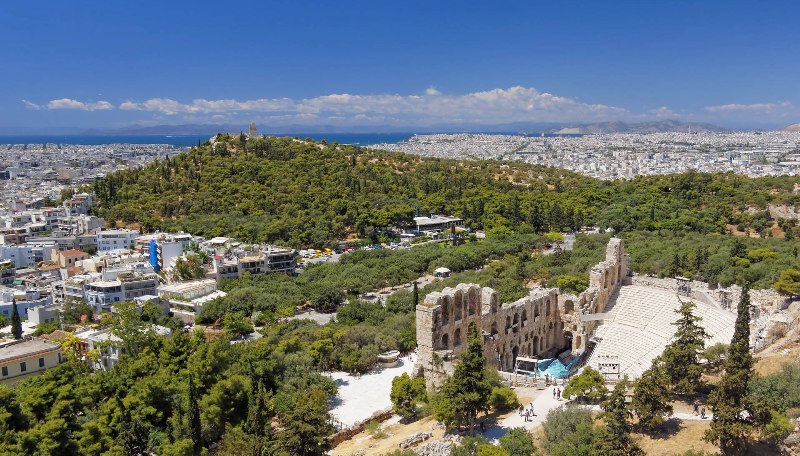EXPERIENCES: Athens, a place to immerse yourself. By Sofía Hernández González
.jpg)
By Sofía Hernández González
Universidad Complutense de Madrid, Spain / Erasmus+ student at the School of Journalism & Mass Communications, Faculty of Economic and Political Sciences, Aristotle University of Thessaloniki, Winter semester 2021-22
(The article was written and published in terms of the course “Writing Personal Columns in Newspapers, Magazines & Blogs”, Erasmus+ Programme of Aristotle University Thessaloniki.)
What can I say about Athens, which, not surprisingly, is called Athens after the goddess Athena, a name that lives up the Greek capital...
The city itself is a gift for any tourist's eyes, not only for the breathtaking sunset that bathes the Acropolis, the Agora, and the Temple of Zeus, but also for its lively cafés and its engaging street life.
I first immersed myself in the district of Plaka, at the foot of the Acropolis, which preserves the charm of the traditional Greece with its narrow streets and ancient taverns. I then made my way matching my footsteps to the notes played by the street musicians to the bustling Monastiraki, a neighbourhood full of Turkish influences and perfect for souvenir shopping. It is said that to really know a city you have to visit its markets. So I got closer to the local life of the city and visited the Central Market, a somewhat chaotic, oriental-style market where the shouts of the vendors and the people trying to make their way through the tight corridors between the stalls become the protagonists. It is a place where I really felt the life and the personality of the city. Then, I walked to the picturesque Piraeus where I couldn't resist falling in love with its narrow streets surrounded by small white and blue houses that transport you, for a few moments, to the beautiful villages of the Greek islands.
.jpg)
Of course, one of the most memorable moments was the ascent to the hill of Philopappos, where I could not stop photographing the spectacular views and the archaeological remains that took my breath away, as the hill preserves on its path the Sanctuary of the Muses and the Church of Agios Dimitrios Loumbardiaris. Above all, what surprised me most was the prison of Socrates, a group of rooms carved out of the mountain which, according to legend, served as a prison for the Athenian philosopher.

As a person who loves gastronomy, I couldn't resist visiting the taverns of the Exarchia neighbourhood, where I enjoyed typical dishes as ‘horiatiki’ -a fresh Greek salad- and the famous ‘moussaka’. Of course, for the end, something to sweeten up: the tasty ‘baklavas’.
I also took the opportunity to enjoy the street art that permeates the narrow alleys. The graffiti claim relevant today issues as poverty, refugees and feminism, among others. This neighbourhood may not be transcendent for the tourist guides, although I think just the opposite, as it is a real turning point in history. It was interesting to walk through the Polytechnic University where in 1973 hundreds of students locked themselves up to put an end to the dictatorship, which ended with the death of dozens of students. The Archaeological Museum, the Acropolis Museum, the Jewish Museum, the Benaki Museum are just some of the jewels in the treasure of the Athenian heritage which I did not fail to enjoy.
In essence, the city is an inebriating combination of history, culture and corners full of magic that make it simply special.
